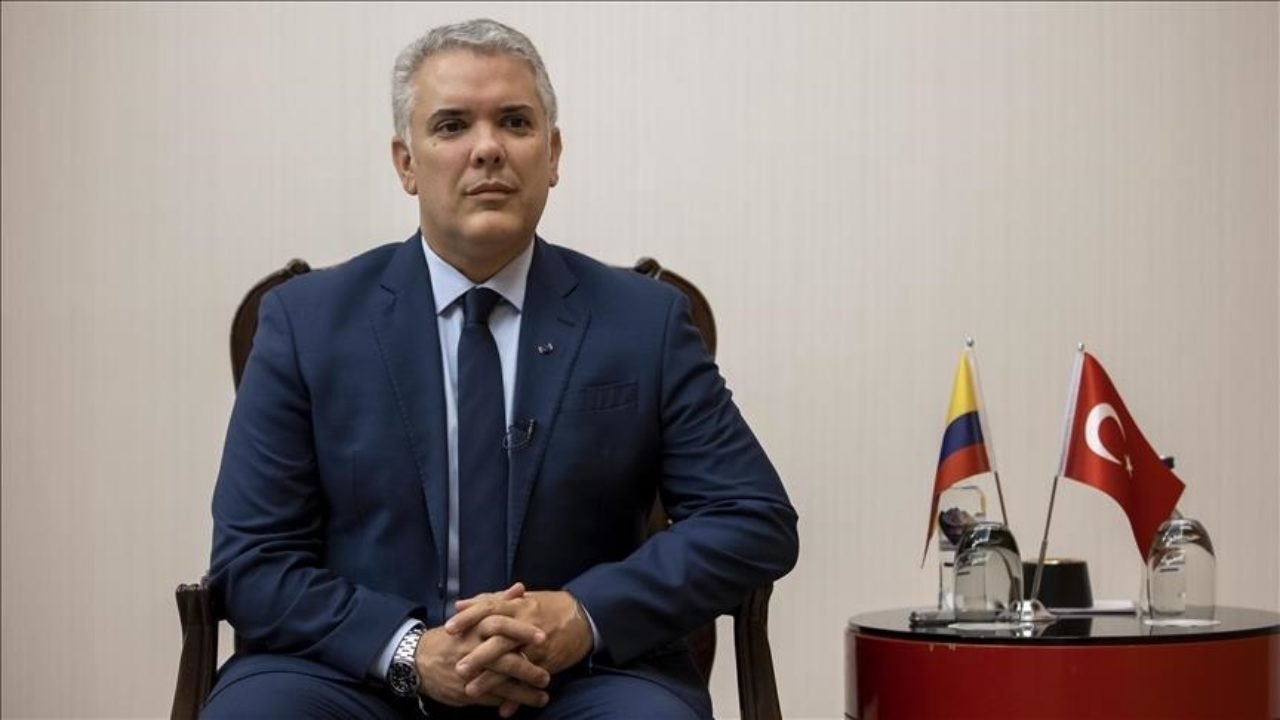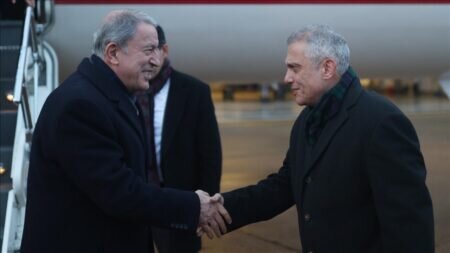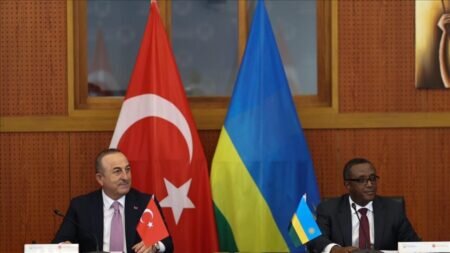As Turkey and Colombia are keen on boosting their bilateral relations, the president of the South American country praised Ankara for declaring Bogota a "strategic partner."
"I certainly applaud it and we're very pleased and honored," Ivan Duque told Anadolu Agency in an interview while on a visit to Istanbul, where he arrived early on Friday and will remain until Sunday.
Duque's visit, at the invitation of Turkish President Recep Tayyip Erdogan, marks the first visit to Turkey by a Colombian president since 2011, when his predecessor Juan Manuel Santos came to the country.
"Bilateral trade has been increasing dynamically. We have now a trade balance that is above $500 million, which is very positive," said Duque.
Emphasizing that Turkey and Colombia could double this figure in the coming years, he said the two countries can concentrate on signing an agreement to avoid double taxation. "If we start searching for common opportunities, this is a win-win."
"I'm also very happy to see that there's Turkish investment in infrastructure, renewable energy, retail, airlines, and we just want this flow to keep on coming to Colombia. But, at the same time, we want Colombia to be able to access the Turkish market," he added.
Last April, Turkish Foreign Minister Mevlut Cavusoglu said the two countries have the potential to boost their trade volume to $5 billion.
Cooperation on infrastructure, tourism
The Colombian president pointed to great interest among Turkish companies to participate in infrastructure works and concession highways, as well as in unconventional and renewable energy.
There is also an interest in expanding "connectivity lines" to improve tourist flows, he added.
According to Duque, Turkish companies have been working to find local partners, while Colombian firms have also been coming to Turkey to identify potential markets and buyers.
"So, I think the essence of this lesson, which is to move to another step, will be to have a clear objective, and the one to duplicate our trade in the next five years," he added.
On past talks for a free trade deal, the president said the two countries were "at a moment" when they may have to "go back to those negotiations."
"There are two preliminary things that can be done beforehand, which is investment and (to) just drop off double taxation. And we can, at the same time, start thinking on a partial trade agreement, and then be able to expand it a little bit more," he explained.
Noting that there are "some sensible sectors" in Turkey and Colombia, he said high inflation levels around the world could "complicate an eventual negotiation."
"So, it's better to have a partial agreement at this moment, and maybe retake the conversation on the free trade agreement," he added.
When asked about how Colombia is addressing the challenges of food and energy security, and high inflation amid the war in Ukraine and pandemic that affected the world economy, he noted that the Colombian economy had grown by a record 10.6% last year.
"We grew 8.5% in the first trimester of this year -- the best first trimester in more than two decades," he said, adding that more than 90% of the jobs that were lost during the pandemic had been recovered.
Turkey, Colombia 'reference model' on migration
On the key issue of migration, with both Turkey and Colombia situated as the recipients of massive irregular inflows due to crises in their neighboring countries, Duque said Turkish and Colombian national migration directors had discussed "humanitarian assistance, health care, housing, and job opportunities."
"We created a temporary protection status for 1.8 million migrants," he said.
According to the UN, Turkey hosts the largest number of refugees, with 3.7 million people, while Colombia is second, with more than 1.7 million.
By discussing and identifying common policies that have worked, Turkey and Colombia can "become a reference model for other countries that are having a tremendous inflow of migrants, like the case of Poland, the case of Slovakia," he added.
"I believe our role here is to try to share those experiences within the OECD, but also with NATO."
Fan of Turkish series 'Wolf'
On possible projects to boost the creative economy between Turkey and Colombia, Duque said he had raised that issue during his meeting with his Turkish counterpart Erdogan on Friday. "I think (...) we can identify all the benefits that we have for the film and series sector."
The two countries can start co-producing, as well as co-distributing, he added. "In Colombia, we have a 40% rebate on taxation for all of those investments that are aimed to create series and films," noted Duque, underlining that this was why it had become "maybe the most competitive market in the region."
"I'd love to see a Columbia-Turkish production that can integrate the best of both markets."
Asked if he watched Turkish television series that are popular in South American countries, Duque said: "Boru (Wolf), the one about the Turkish Special Forces."
"I've watched it a couple of times. I think it's a wonderful production and there are a lot of people who have watched it," he said. Boru, or Wolf, is a six-episode series released in 2018.
Noting Columbian series are also popular on streaming platforms like Netflix, he said: "This should take us to have a co-production that can successfully reach the Turkish and Colombian public."
As Duque is leaving office this August following presidential elections in the country, he said he wanted to "keep on being a voice" for environmental causes, as well as for the creative industry and migration policies.
"I want to create a new think tank, concentrated on ... these policies, benefits for the poorest of the poor."
In 2015, Erdogan went to Colombia, where the two countries signed important agreements, including on the defense industry, tourism, and agriculture.
Following Erdogan's visit, Turkish Airlines started flights on the Istanbul-Bogota-Panama-Istanbul route in May 2016, with the Turkish Cooperation and Coordination Agency (TIKA) opening its second regional office in Bogota after the one in Mexico City.
Source: AA









